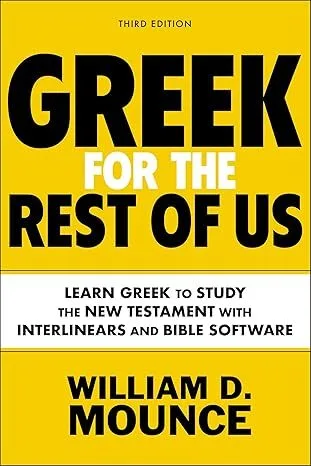Pronunciation Guide: pan-AY-goo-ris
Strong’s G3831: πανήγυρις refers to a grand festal gathering or joyful assembly, particularly describing the heavenly celebration where countless angels and saints unite in worship before יהוה (Yahweh). This word appears only once in the New Testament, in Hebrews 12:22, where it describes the magnificent celestial assembly believers join through the Messiah’s finished work.

Key Information
πανήγυρις

Strong’s Entry
g3831
paneguris (pan-ay’-goo-ris) n.1. a public or national assembly2. (especially) a festive assembly to honor a national god3. [from G3956 and a derivative of G58]KJV: general assembly Root(s): G3956, G58
What Does πανήγυρις Mean?
Strong’s G3831: πανήγυρις represents far more than an ordinary gathering – it signifies a universal, jubilant festival assembly where heaven and earth unite in celebration. In Hebrews 12:22-23, this word describes the magnificent heavenly reality believers enter through faith in Yeshua (Jesus). Unlike the terrifying assembly at Mount Sinai where people trembled in fear, πανήγυρις depicts heaven’s joyous celebration where “myriads of angels” gather in festival-like worship. This assembly includes both the heavenly hosts and the “assembly of the firstborn” – believers whose names are inscribed in heaven’s registry. The word captures the essence of divine celebration, where perfect worship, endless joy, and eternal fellowship converge in יהוה’s presence.
Key Insight: πανήγυρις transforms our understanding of approaching God from fearful distance to joyful participation in heaven’s eternal celebration.
Where Does πανήγυρις Come From?
- Part of Speech: Noun, Feminine
- Root Words: πᾶς (pas, “all”) + ἄγυρις (agyris, “assembly”)
- Language Origin: Classical Greek (Herodotus, Pindar era)
- Primary Usage: Festival gathering, national assembly, religious celebration
- Hebrew Equivalents: מועד (mo’ed – appointed time/festival), עצרה (atzarah – solemn assembly)
What Is the Historical and Cultural Context of πανήγυρις?
Classical Greek Origins and Development
The word πανήγυρις emerged in classical Greek literature, appearing in the works of Herodotus and Pindar during the 5th century BCE. The term originally described “a festal gathering of the whole people to celebrate public games or other solemnities” and was used “from Herodotus and Pindar down” to describe various types of public assemblies. The compound structure combines παν- (“all”) with ἄγυρις (“assembly”), an Aeolic dialect form corresponding to the Attic ἀγορά (“marketplace” or “public square”).
Panhellenic Festival Tradition
In ancient Greece, πανήγυρις referred specifically to the great Panhellenic festivals that united all Greek peoples – the Olympic, Pythian, Isthmian, and Nemean games. These were occasions where “the entire people” gathered for “festival assemblies” that combined athletic competition, religious worship, and cultural celebration. Pindar, the master of victory odes, celebrated these festivals in his epinicia, recognizing their role in uniting the Greek world around shared religious and cultural values.
Septuagint Usage and Hebrew Connections
In the Septuagint (Greek Old Testament), πανήγυρις translates Hebrew terms like מועד (mo’ed) in Ezekiel 46:11, Hosea 2:11, and Hosea 9:5, and עצרה (atzarah) in Amos 5:21. These Hebrew words describe Israel’s appointed festivals and sacred assemblies, where the covenant people gathered before יהוה for worship, celebration, and covenant renewal.
Historical Summary: πανήγυρις evolved from describing Greek national festivals to representing the ultimate divine assembly where heaven and earth celebrate together.
How Is πανήγυρις Used in the Bible?
The New Testament contains only one occurrence of πανήγυρις, but its placement is strategically significant. In Hebrews 12:22-23, the author contrasts the terrifying assembly at Mount Sinai with the joyful heavenly assembly believers now approach through the Messiah’s mediation.
Contextual Significance in Hebrews
The word describes “the joyful assembly” of angels in heaven, using paneguris as “the word for a joyful national assembly in honour of the gods” which “to the Greek described a joyful holy day when all men rejoiced”. The author of Hebrews deliberately chose this term to emphasize the celebratory nature of approaching God under the New Covenant, contrasting sharply with the fear and trembling that characterized the Old Covenant experience at Sinai.
Theological Implications
This heavenly πανήγυρις represents “the community of God’s people, where they are united with the faithful of all ages”. The assembly includes both heavenly beings and earthly believers whose names are “enrolled in heaven,” creating a unified celebration spanning both realms of creation.
Usage Summary: πανήγυρις appears once in Hebrews 12:22-23, describing the heavenly festal assembly of angels and saints that believers join through faith in the Messiah.
- Hebrews 12:22-23 – “But you have come to Mount Zion and to the city of the living God, the heavenly Jerusalem, and to innumerable angels in festal gathering [πανηγύρει], and to the assembly of the firstborn who are enrolled in heaven”
How Should πανήγυρις Be Translated?
Primary Meanings:
- Festal gathering/assembly
- Joyful celebration
- General assembly
- Festival convocation
- Celebratory congregation
Translation Tip: Context determines whether to emphasize the festive, universal, or celebratory aspects of the assembly.
πανήγυρις Translation Options:
| Translation | Context | Reasoning |
|---|---|---|
| “Festal gathering” | Heavenly worship assembly | Emphasizes celebratory nature using dative case |
| “General assembly” | Universal congregation | Highlights inclusive scope of all participants |
| “Joyful assembly” | Worship celebration | Captures emotional tone of heavenly gathering |
| “Festival convocation” | Sacred celebration | Combines religious and festive elements |
| “Celebratory congregation” | Worship gathering | Merges assembly and celebration concepts |
What Does πανήγυρις Teach Us About God?
The concept of πανήγυρις reveals profound truths about יהוה’s character and His relationship with His people. God is not a distant, austere deity who demands fearful approach, but rather the gracious Father who invites His children into heaven’s joyful celebration. The πανήγυρις demonstrates that worship in God’s presence is fundamentally celebratory – a truth that transforms our understanding of both earthly and eternal worship.
Divine Joy and Celebration
The fact that God’s throne room is described as a πανήγυρις shows that joy is intrinsic to the divine nature. This isn’t merely human happiness projected onto God, but the revelation that eternal celebration characterizes life in יהוה’s presence. The angels, described as participating in this festal assembly, reflect God’s own joyful nature in their worship.
Inclusivity and Unity
The πανήγυρις includes both heavenly and earthly participants, demonstrating God’s desire for universal worship and fellowship. This assembly transcends earthly divisions of race, nation, and social status, revealing God’s heart for unified celebration among all His people.
Theological Core: πανήγυρις reveals that approaching God through Messiah Yeshua transforms fear into joy and distance into celebratory fellowship.
How Can I Apply πανήγυρις to My Life?
Understanding πανήγυρις should revolutionize how you approach worship and your relationship with יהוה. Instead of viewing God as distant or fearsome, embrace the reality that you are invited into heaven’s ongoing celebration. Your worship should reflect the joyful, celebratory nature of the heavenly πανήγυρις – not superficial happiness, but deep, Spirit-filled joy rooted in the Messiah’s finished work.
Practical Implications
Let this truth reshape your prayer life, worship gatherings, and daily walk with God. You’re not approaching a reluctant deity who must be appeased, but joining an eternal celebration where you belong. The Holy Spirit enables you to participate in this heavenly assembly even now, as you worship with other believers and live in the reality of your heavenly citizenship.
Self-Examination Questions: Does my worship reflect the joyful nature of heaven’s celebration? Am I living with an awareness of my participation in the eternal πανήγυρις? How can I better embody the celebratory spirit of heavenly worship in my daily life?
What Words Are Similar to πανήγυρις?
- ἐκκλησία (ekklēsia) – “Assembly, church” – Focuses on the called-out nature of the gathering rather than its celebratory aspect – See G1577
- συναγωγή (synagōgē) – “Gathering together, synagogue” – Emphasizes the act of gathering rather than the festive nature – See G4864
- ἀγορά (agora) – “Marketplace, public square” – The root concept of gathering place without religious significance – See G58
- πανηγυρικός (panēgyrikos) – “Festive, celebratory” – The adjective form describing the nature of such assemblies – See G3832
- χορός (choros) – “Dance, choir, celebration” – Describes the expressive worship aspect of festal gatherings – See G5525
Did You Know?
- What does πανήγυρις mean in modern Greek? Today, πανηγύρι (panigyri) refers to traditional Greek festivals, especially religious celebrations with food, music, and dancing celebrating Orthodox saints’ feast days.
- How did Pindar use πανήγυρις? The great lyric poet Pindar used this word to describe the Olympic and other Panhellenic games, where all Greece gathered to honor the gods through athletic competition and artistic celebration.
- What’s the difference between πανήγυρις and ἐκκλησία? While ἐκκλησία emphasizes the “called out” nature of the assembly, πανήγυρις highlights the joyful, celebratory character of the gathering.
- Why does the Bible use πανήγυρις in Hebrews 12:22? The author deliberately contrasts the terrifying assembly at Sinai with heaven’s joyful celebration to show how the Messiah transforms our approach to God from fear to festive worship.
- How does πανήγυρις relate to New Covenant worship? It reveals that New Covenant worship is fundamentally celebratory, reflecting the joy of heaven rather than the fear of earthly religion.
- What causes fear in approaching God today? Legalistic religion, guilt, and misunderstanding God’s character through the Messiah can rob believers of the joyful worship that πανήγυρις represents.
- Heaven’s assembly is eternally festive – Unlike earthly celebrations that end, the heavenly πανήγυρις is an ongoing celebration where worship, joy, and fellowship never cease, revealing the eternal nature of life in God’s presence.
Remember This
πανήγυρις transforms our understanding of approaching God from fearful obligation to joyful participation in heaven’s eternal celebration, where the Messiah has made us welcome participants in the divine festival of worship.
Note: While this entry strives for accuracy, readers engaged in critical research should verify citations and keyword occurrences in their Bible translation of choice. For Biblical citations, the F.O.G Bible project recommends Logos Bible software.
Strong's g3831
Add Comment
God's Word is too vast for a single perspective. We all have a story, and as believers we all carry the Holy Spirit who is the Revealer. With this in mind - I would love to read your comments.




